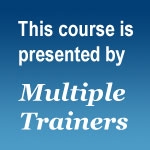

Search Results: support
-
- Do you know what is yours to do in response to our growing global crises?
- Is nonviolence woven as deeply as you want it into how you live and lead?
- Have you ever experienced what it’s like to participate in an interdependent web of mutual support to fully embody our commitments?
- Are you familiar with how to bring yourself back again and again to aligning with purpose in every moment?
- Do you see yourself as part of transforming the legacy of scarcity, separation, and powerlessness into a livable future?
-
- Learn how every decision we make perpetuates the status quo or brings us closer to the vision of a world that works for all
- Find out about our big brain capacity to integrate needs, impacts, and resources to make decisions that work for everyone
- Understand why power differences interfere with collaborative decisions and what can be done about it
- Discover tools that support collaboration in larger groups and organizations— even across power differences!
-
- Wish you knew how to align your organization with its purpose and values?
- Want to increase your capacity to live in integrity with your values, too?
- Concerned about the level of engagement within your organization?
- Yearn to connect to a sense of meaning in your life during this time of global crises?
- Long to discover what is yours to do – and wish you knew how to leverage the resources you have in response to what is needed?
-
Grieving reminds us of the preciousness of life, it helps us integrate loss, and it opens us to deeper compassion, inspiration, and joy. We need to create space in our lives to grieve fully.
-
What are the most powerful things I can do to build an inspired relationship? I answered the question with romantic relationships in mind; however, I believe the answer below applies to all important relationships.
-
- Discover what is yours to do in response to our global crises
- Weave nonviolence more deeply into how you live and lead
- Receive ongoing support in how to be effective and alive while pursuing your highest goals
- Increase your capacity to face and mourn current reality as a source of greater choice and energy
- Be a part of transforming the legacy of scarcity, separation, and powerlessness into a livable future
-
There are many polarizing issues we can resist and fight over. The word "resistance" can mean fighting against what we don’t agree with in counterproductive ways. It can also be the illusion and futility of mentally fighting against reality of 'what is'. But acceptance, non-resistance, of what is doesn’t mean powerless resignation. Another way to resist is to accept and love whole-heartedly, with empathy and care for the people doing the things we are resisting.
-
Transform relationship pain and build thriving connections with NVC, Attachment Theory and IPNB.
-
How do we talk to ourselves and with others about polarizing topics in a way that's supportive? Seek to understand and be understood rather than press for agreement. Bring mindfulness into the conversation. Slow down and use structure to support everyone. Release knowing the solutions, answers or outcomes. Keep focus on shared universal needs. From this place we can say what's in our hearts and minds, and trust the process.
-
Using his own life experience, Eric explores why we need support from others, what support might look like, and what blocks us from asking for support for our relationships.
-
When supporting someone with less privilege, first check with them how you can support. If you're reacting more strongly to their undesirable experience than they are, this then shifts the dynamic so that they're setting aside what they want to attend to your feelings and needs - this may become work that they didn't sign up for. Read on for what to do instead to support more equity.
-
-
-
-
If you want to support someone in distress offer a menu of ways you can contribute. Often a person in distress can’t articulate what they need but can recognize it when they hear it. Move fluidly among these 11 options to offer what’s truly helpful, rather than offering something out habit or based on what you think they should have. Remember that you can ask, “Is this helpful?” to support collaboration.
-
- Learn how to transform NVC into a tool for systemic awareness and healing
- Examine the influence of difference, and uncover pathways that strengthen its capacity
- Learn to receive and offer feedback on impact in situations fraught with power differences
- Explore specific ways in which NVC systemically supports the full flowering of humanity
- Delve into the dynamics of cultural differences, and discover how NVC can systemically contribute to a liberation perspective
-
- Connect the dots between NVC basic practices and the deeper "why" behind them
- Discover how NVC can support us in bringing tenderness to all of humanity
- Learn how to tie the NVC approach to liberation and vision
- Explore the many ways the tools of NVC support the path of liberation!
-
How can we express ourselves in a way that supports a natural flow of connection while maintaining a focus on NVC consciousness? This handout from CNVC Certified Trainer, Miki Kashtan, offers seven options that support NVC enthusiasts in evolving from classical to colloquial NVC language.
-
Apply NVC mediation skills in child-related conflicts, for parents, teachers, and others.
-
Inbal offers parents and anyone with children in their life a lucid discussion of the important role self-empathy plays in creating healthy, supportive relationships.

Quick Links
Subscription Preferences
Stay In Touch!
Looking for ways to keep up with NVC Academy news, get special offers, free resources, or words of inspiration? Here are five ways to stay engaged:














